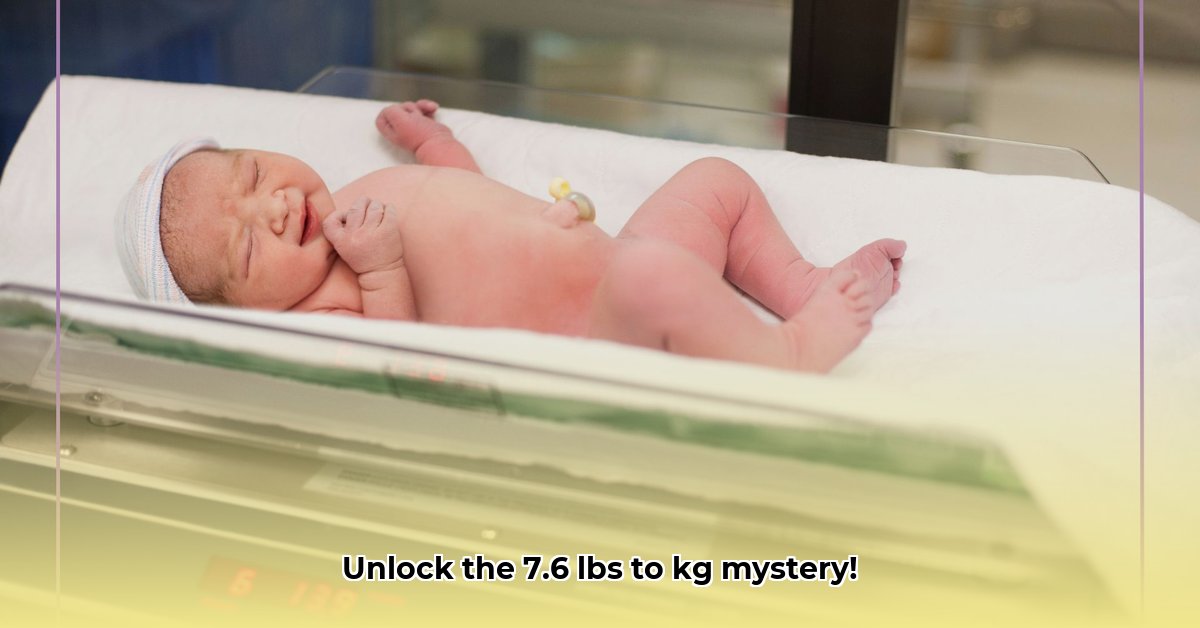
Understanding the Conversion: Pounds to Kilograms
This guide provides a clear, step-by-step method for converting pounds (lbs) to kilograms (kg). Whether you're shipping a package internationally or following a recipe with metric measurements, accurately converting weight units is crucial. This guide will equip you with the knowledge and skills to perform this conversion consistently and confidently.
The Fundamentals: Pounds and Kilograms
Before delving into the conversion process, let's define the units involved. Both pounds (lbs) and kilograms (kg) are units of weight, representing the force of gravity acting on an object. While often used interchangeably in casual conversation, weight and mass are distinct concepts. Mass is a measure of the amount of matter in an object, unchanging regardless of location. Weight, however, depends on the gravitational pull at a given location. For everyday conversions, however, we can treat pounds and kilograms as measuring essentially the same thing – the force of gravity on an object. For precise scientific measurements, the distinction between mass and weight needs to be carefully handled.
The Conversion Factor: The Key to Accuracy
The cornerstone of pound-to-kilogram conversion is the conversion factor: 1 lb ≈ 0.453592 kg. This means one pound is approximately equal to 0.453592 kilograms. This factor is essential for accurate conversions and is derived from the official definitions of these units. Using this factor ensures precise results, especially when dealing with larger weights or situations requiring high accuracy. Did you know that using a less precise conversion factor can result in significant errors when converting larger weights?
Step-by-Step Conversion of 7.6 Pounds
Let's convert 7.6 pounds to kilograms following these simple steps:
Start with the formula: Kilograms = Pounds × Conversion Factor
Substitute values: Kilograms = 7.6 lbs × 0.453592 kg/lb
Calculate: Kilograms ≈ 3.4472992 kg
Round appropriately: For most applications, rounding to two or three decimal places is sufficient. Rounding to two decimal places gives us 3.45 kg. For more precise results, use more decimal places or maintain unrounded value depending on the requirements. For example, for scientific experiments, higher precision is necessary due to the propagation of rounding errors in subsequent calculations.
Therefore, 7.6 pounds is approximately 3.45 kilograms.
Additional Conversion Examples
To further illustrate the process, let's convert a few more weights:
| Pounds (lbs) | Kilograms (kg) (Rounded to two decimal places) |
|---|---|
| 5.0 | 2.27 |
| 10.0 | 4.54 |
| 15.0 | 6.80 |
Addressing Potential Pitfalls: Precision and Rounding
While this conversion is straightforward, several factors affect accuracy. The primary concern is rounding, as using an approximate conversion factor introduces a slight error. For everyday use, rounding to two decimal places is sufficient, with negligible impact. However, for situations requiring extreme precision, such as scientific or engineering applications, using the full conversion factor (0.453592 kg/lb) and minimizing rounding is crucial to avoid accumulation of errors that lead to significant inaccuracies. In practice, it's essential to balance the required level of precision with the context of the conversion.
Key Takeaways: Mastering Pound-to-Kilogram Conversions
This guide provides a comprehensive understanding of converting pounds to kilograms. Remember the conversion factor (0.453592 kg/lb), and follow the step-by-step process to achieve accurate results. Always consider the required precision for your specific application and round accordingly. With practice, this conversion will become second nature, enabling you to confidently tackle weight conversions in various situations. The accuracy of your conversions is important, especially when dealing with commercial transactions or scientific experiments.